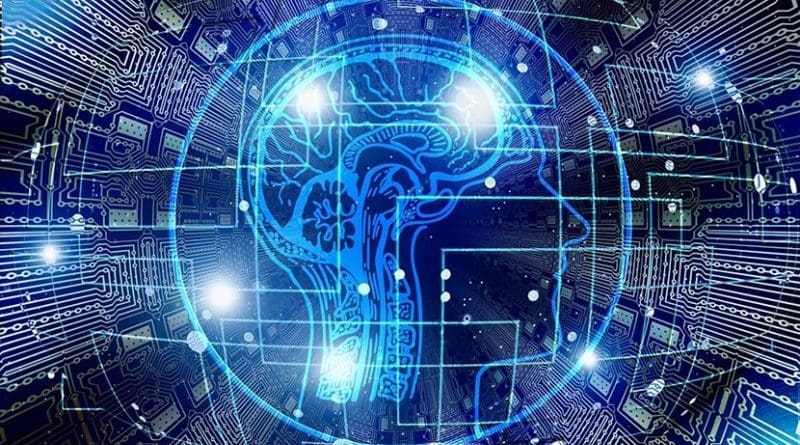
Artificial General Intelligence: A Definitive Exploration Of AI’s Next Frontier – Analysis
Artificial General Intelligence (AGI) is a field within artificial intelligence (AI) where researchers are working to develop a computer system that can surpass human intelligence in various tasks.
These systems might understand themselves and control their actions, including changing their own code. They could learn to solve problems on their own, just like humans, without needing to be taught.
The term “Artificial General Intelligence (AGI) ” was first used in a 2007 book, which is a collection of essays edited by computer scientist Ben Goertzel and AI researcher Cassio Pennachin.
However, the idea of Artificial General Intelligence has been around for many years in the history of AI and is often seen in popular science fiction books and movies.
The AI systems we use today, like simple machine learning algorithms on Facebook or advanced models like ChatGPT, are known as “narrow” AI. This means they are designed to handle specific tasks rather than having general intelligence like humans.
This means these AI systems can do at least one job, like recognizing images, better than humans. However, they are only able to do that specific task or similar actions based on the data they were trained with.
AGI, or Artificial General Intelligence, would go beyond just using the data it was trained on. It would have human-like abilities to reason and understand in many areas of life and knowledge. This means it could think and make decisions in the same way a person does, applying logic and context to different situations, not just following pre-programmed patterns.
Since AGI has never been created, scientists don’t fully agree on what it could mean for humanity. There is uncertainty about the potential risks, which ones are more likely, and what kind of impact it could have on society.
Some people have previously thought that AGI might never be possible, but now many scientists and tech experts believe it could be achieved in the next few years. Notable figures, including computer scientist Ray Kurzweil and Silicon Valley leaders like Mark Zuckerberg, Sam Altman, and Elon Musk, are among those who share this view.
What are the advantages and potential dangers of AGI?
AI has already shown many benefits across different areas, helping with scientific research and saving people time in everyday tasks.Newer tools, like content creation systems, can produce artwork for marketing or write emails based on how a user typically communicates.However, these tools can only complete the tasks they were specifically trained for, using the data that developers provided to them.
AGI, on the other hand, could bring a whole new range of benefits for humanity, especially in situations that need advanced problem-solving skills.
In a blog post from February 2023, three months after ChatGPT launched, OpenAI’s CEO Sam Altman suggested that AGI could, in theory, boost resource availability, accelerate the global economy, and lead to groundbreaking scientific discoveries that expand what we believe is possible.
Altman also mentioned that AGI could give people amazing new abilities, allowing everyone to get help with almost any mental task. This would greatly enhance human creativity and problem-solving skills.
However, AGI also comes with significant risks. According to Musk in 2023, these risks include “misalignment,” where the system’s goals might not align with those of the people controlling it, and the possibility, though small, that a future AGI system could pose a threat to humanity’s survival.
A review published in August 2021 in the Journal of Experimental and Theoretical Artificial Intelligence highlighted several potential risks of future AGI systems, even though they could bring “huge benefits for humanity.”
The review pointed out several risks related to AGI, such as AGI breaking away from human control, being given or developing dangerous goals, creating unsafe AGI, AGI systems lacking proper ethics, morals, and values, poor management of AGI, and the possibility of existential threats, according to the study’s authors.
The authors also suggested that future AGI technology could potentially improve itself by developing smarter versions and even changing its original programmed goals.
The researchers also warned that some groups might create AGI for harmful purposes, and even well-intentioned AGI could lead to “disastrous unintended consequences,” according to a report by LiveScience.
When is AGI expected to arrive?
There are differing opinions on whether humans can truly create a system as advanced as AGI, and when that might happen. Surveys of AI experts suggest that many believe AGI could be developed by the end of this century, though opinions have shifted over time.
In the 2010s, most experts believed that AGI was about 50 years away. However, more recently, this estimate has been shortened to anywhere between 5 and 20 years.
Recently, several experts have predicted that an AGI system could emerge within this decade.
In his book The Singularity is Nearer (2024, Penguin), Kurzweil predicted that reaching AGI would signal the start of the technological singularity (a point where AI surpasses human intelligence), as reported by LiveScience.
This moment will mark a point where there is no turning back, leading to rapid technological growth that becomes uncontrollable and permanent.
Kurzweil predicts that after reaching AGI, superintelligence will emerge by the 2030s. By 2045, he believes people will be able to connect their brains directly to AI, enhancing human intelligence and consciousness.
Some scientists believe that AGI could be developed very soon.
For example, Goertzel has predicted that we could reach the singularity by 2027, while Shane Legg, co-founder of DeepMind, believes AGI could arrive by 2028.
Musk has also predicted that AI will surpass human intelligence by the end of 2025.

Girish Linganna
Girish Linganna is a Defence, Aerospace & Political Analyst based in Bengaluru. He is also Director of ADD Engineering Components, India, Pvt. Ltd, a subsidiary of ADD Engineering GmbH, Germany. You can reach him at: girishlinganna@gmail.com
No comments:
Post a Comment